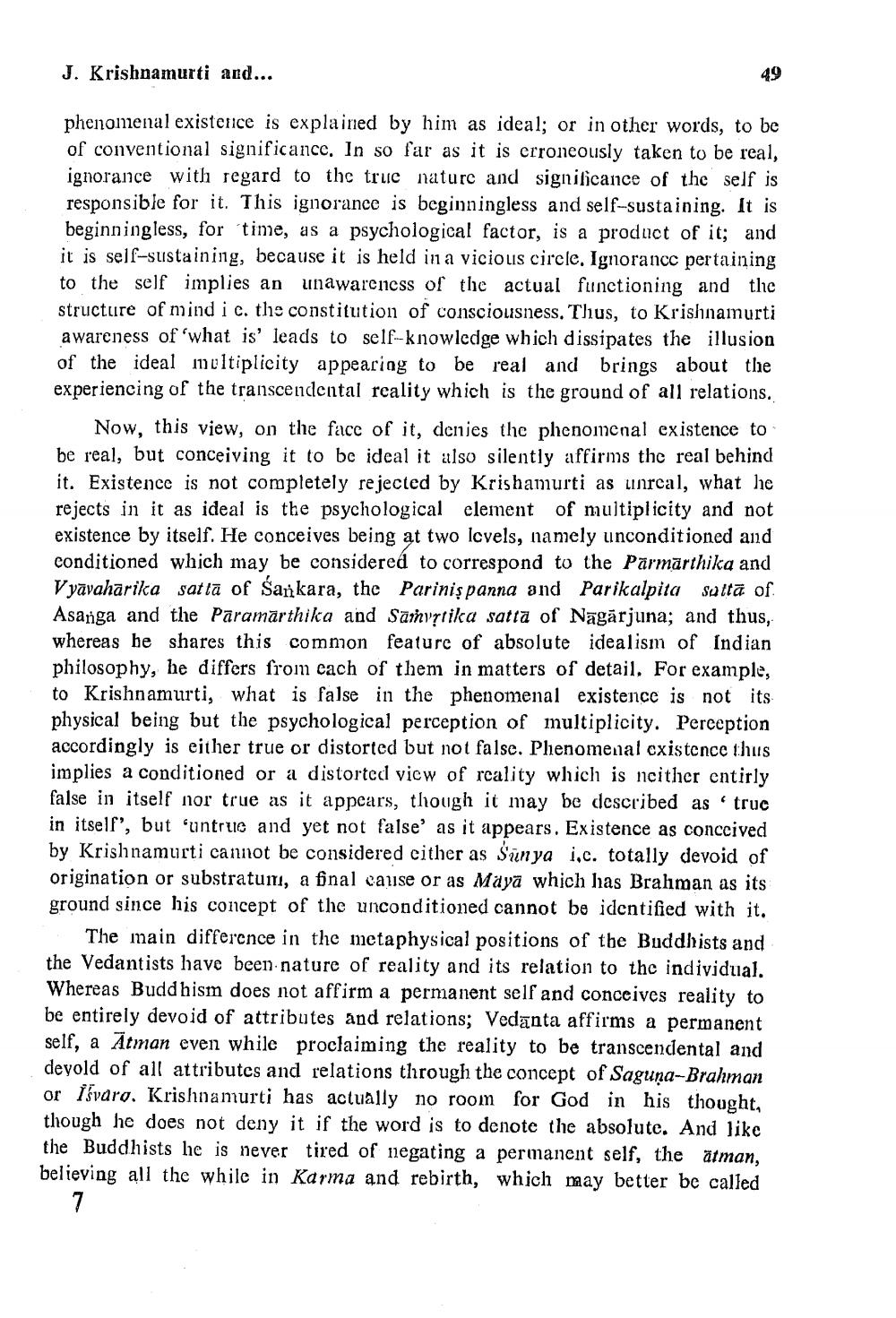________________
J. Krishnamurti and...
49
phenomenal existence is explained by him as ideal; or in other words, to be of conventional significance. In so far as it is erroneously taken to be real, ignorance with regard to the true nature and significance of the self is responsible for it. This ignorance is beginningless and self-sustaining. It is beginningless, for time, as a psychological factor, is a product of it; and it is self-sustaining, because it is held in a vicious circle. Ignorancc pertaining to the self implies an unawareness of the actual functioning and the structure of mind i c. the constitution of consciousness. Thus, to Krishnamurti awareness of what is' leads to self-knowledge which dissipates the illusion of the ideal multiplicity appearing to be real and brings about the experiencing of the transcendental reality which is the ground of all relations.
Now, this view, on the face of it, denjes the phenomenal existence to be real, but conceiving it to be ideal it also silently affirms the real behind it. Existence is not completely rejected by Krishamurti as unreal, what he rejects in it as ideal is the psychological element of multiplicity and not existence by itself. He conceives being at two levels, namely unconditioned and conditioned which may be considered to correspond to the Pärmarthika and Vyāvaharika satta of Sankara, the Parinis panna and Parikalpita sutta of Asanga and the Paramārthika and Samvžtika satta of Nāgārjuna; and thus, whereas he shares this common feature of absolute idealism of Indian philosophy, he differs from each of them in matters of detail. For example, to Krishnamurti, what is false in the phenomenal existence is not its physical being but the psychological perception of multiplicity. Perception accordingly is either true or distorted but not false. Phenomenal existence thus implies a conditioned or a distorted vicw of reality which is neither entirly false in itself nor true as it appears, though it may be described as 'truc in itself', but 'untrue and yet not false' as it appears. Existence as conceived by Krishnamurti cannot be considered cither as Sünya i,c. totally devoid of origination or substratum, a final cause or as Maya which has Brahman as its ground since his concept of the unconditioned cannot be identified with it.
The main difference in the metaphysical positions of the Buddhists and the Vedantists have been nature of reality and its relation to the individual. Whereas Buddhism does not affirm a permanent self and conceives reality to be entirely devoid of attributes and relations; Vedanta affirms a permanent self, a Ātman even while proclaiming the reality to be transcendental and deyold of all attributes and relations through the concept of Saguna-Brahman or ifvaro. Krishnamurti has actually no room for God in his thought, though he does not deny it if the word is to denote the absolute. And like the Buddhists he is never tired of negating a permanent self, the atman, believing all the while in Karma and rebirth, which may better be called




